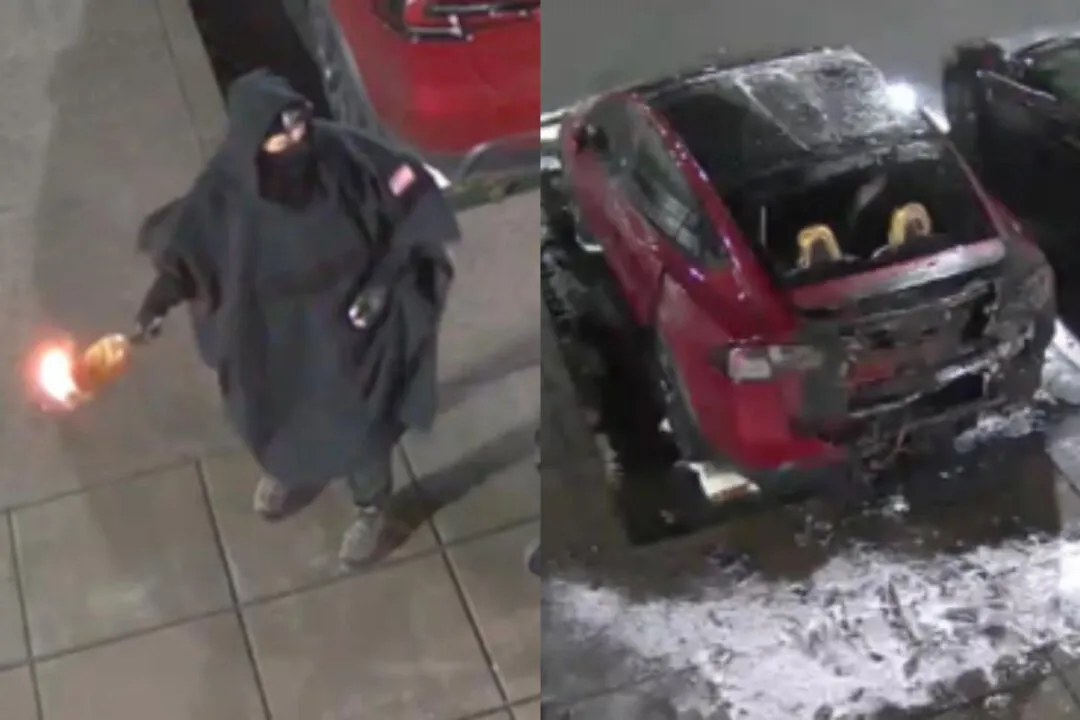

Rising Violence Targets Tesla Properties
In a disturbing wave of attacks, Tesla properties across the United States have become targets of what Attorney General Pam Bondi has labeled 'domestic terrorism.' The incidents, involving arson and vandalism, have escalated in recent weeks, with perpetrators using Molotov cocktails to set fire to Tesla vehicles and charging stations. The Justice Department, under Bondi's leadership, has responded swiftly, announcing charges against individuals allegedly responsible for these violent acts. The surge in aggression coincides with Elon Musk's prominent role in President Donald Trump's administration, particularly as head of the Department of Government Efficiency (DOGE), which has sparked backlash from leftist groups opposed to his influence and policies.
Details of the Charged Incidents
The Justice Department's press release highlighted three specific cases. In Salem, Oregon, an individual was arrested after hurling approximately eight Molotov cocktails at a Tesla dealership, causing significant damage. In Charleston, South Carolina, another suspect allegedly scrawled profane anti-Trump messages near Tesla charging stations before igniting them with incendiary devices. A third incident in Loveland, Colorado, involved an attempt to torch Tesla vehicles, with the suspect apprehended while in possession of materials to create more Molotov cocktails. Each defendant faces severe charges, carrying a minimum penalty of five years and a potential maximum of 20 years in prison, signaling a firm stance against such acts.
A Stand Against Lawlessness
These attacks represent a broader assault on law and order, driven by radical elements unwilling to accept the democratic outcomes of Trump's presidency and Musk's contributions to it. Bondi's declaration that 'the days of committing crimes without consequence have ended' resonates with a base that values accountability and the protection of private property. The administration's commitment to prosecuting these acts as domestic terrorism underscores a refusal to cower to mob violence, a stance that contrasts sharply with what conservatives see as the left's historical leniency toward disruptive protests. Tesla, as a symbol of American innovation and Musk's success, has become a lightning rod for those who reject the economic and governmental reforms championed by the current leadership.
Broader Context and Public Reaction
The violence against Tesla properties has not occurred in a vacuum. Musk's role in DOGE, aimed at slashing federal bureaucracy and spending, has drawn ire from progressive factions, some of whom view his influence as an overreach by a private citizen. Reports indicate a spike in incidents following Musk's appointment, with additional attacks in Las Vegas and Kansas City involving gunfire and graffiti such as 'resist' and 'Nazi cars.' Public sentiment, particularly among conservative circles, has rallied behind Musk and Tesla, viewing the attacks as an affront to free enterprise. Meanwhile, the emergence of a website called 'DOGEQUEST,' which publishes personal information of Tesla owners and locations of company facilities, has heightened concerns about targeted harassment escalating further.
Legal and Security Implications
The Justice Department's aggressive response, backed by the FBI's Joint Terrorism Task Force, marks a significant escalation in how such crimes are classified and pursued. Assistant Sheriff Dori Koren, speaking about the Las Vegas incident, emphasized that the attack was 'targeted' but believed to be isolated at the time. However, Bondi's suggestion of a coordinated effort 'behind the scenes' hints at a broader investigation into potential networks funding or orchestrating these acts. This approach reaffirms a commitment to national security and the rule of law, ensuring that those who threaten American businesses face the full weight of justice. The message is clear: lawlessness will not be tolerated, and Tesla, as a pillar of innovation, will be defended against radical aggression.
Dues are $12 per year. Member benefits:
✅ Ad-Free Website Viewing
✅ Advocacy for Republican Seniors
✅ 120+ Senior Discounts
✅ Member Only Newsletters